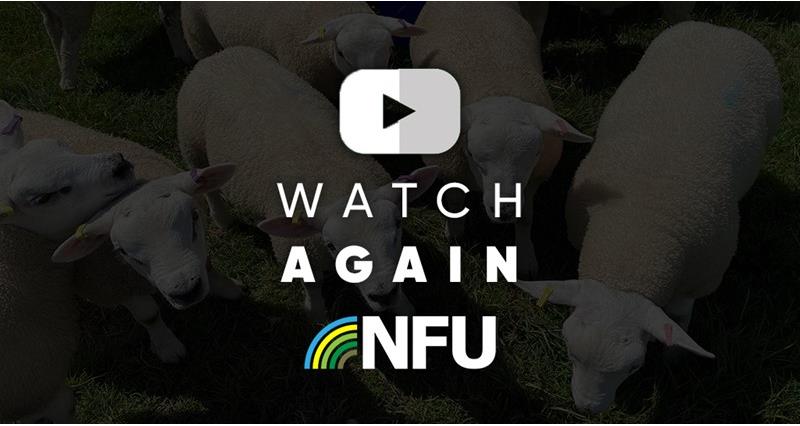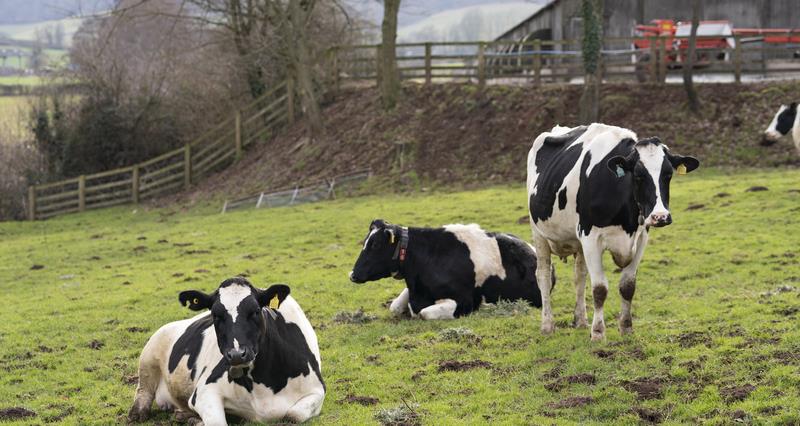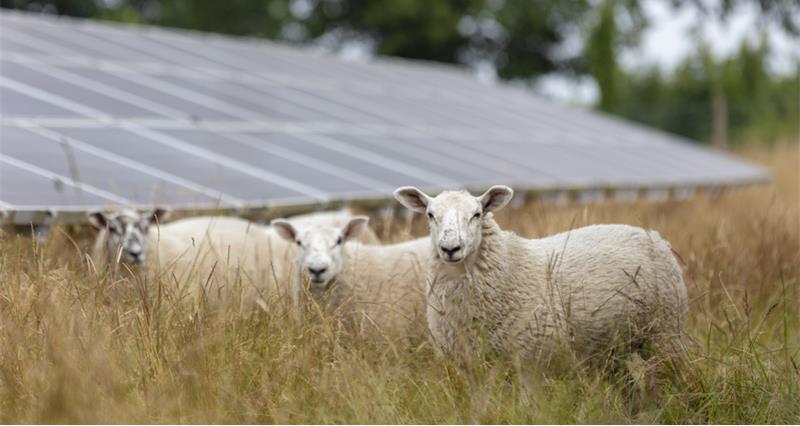What is Bluetongue?
Bluetongue (BTV) is a viral disease spread by biting midges, which affects all ruminants (eg. sheep, cattle, goats and deer) and camelids (such as llama and alpaca).
Symptoms vary across ruminants, but include fever, lesions, redness of the mouth, eyes, nose, reddening of the skin above the hoof, excessive salivation and nasal discharge. However, animals may show little or no clinical signs. It does not affect humans or food safety; meat and milk from infected animals are also safe to eat and drink.
A new strain, BTV-3, was first reported in September 2023 in the Netherlands. Cases have since been reported in Belgium and Germany. The first case was confirmed in the UK on 10 November 2023.
There is currently no vaccine for the new strain. There is a vaccine for other strains of BTV, including BTV-8, 2 and 4, which is used in France for export purposes, but this does not provide any cross protection for BTV-3.
For dedicated information on Bluetongue, visit – Bluetongue Virus - Ruminant Health & Welfare.
Bluetongue is a notifiable animal disease. If you suspect it you must report it immediately by calling the Defra Rural Services Helpline on 03000 200 301. In Wales, contact 0300 303 8268. In Scotland, contact your local Field Services Office. Failure to do so is an offence.
Visit Bluetongue: how to spot and report the disease - GOV.UK.
Latest news
As of 19 February 2024, the two 10km TCZs (temporary control zones) in Norfolk and Kent have been lifted. However, surveillance testing will continue. A text message has been sent by APHA to all livestock keepers located within the current TCZs to inform them of these changes.
Farms with high risk animals, or with animals waiting to be tested, remain under restriction. If this reflects your situation, APHA will be in contact with you to arrange next steps.
Farms with positive cases also remain under restriction.
Movement licences are available for high risk animals that remain under restriction, and a licence will be available permitting the movement of negative animals on and off holdings that have had positive results.
Information on the latest case numbers and disease situation in England can be found at: GOV.UK | Bluetongue: how to spot and report it
A flow chart has been produced by the Ruminant Health and Welfare Group which can help farmers previously in TCZs to determine next steps for their livestock: RHWG | Flow chart for farmers
NFU members with queries can contact NFU CallFirst on: 0370 845 8458
High risk animals
High risk animals – positive pregnant animals, positive entire males and animals waiting to be tested for Bluetongue – that are currently within the TCZs will be placed under restriction at the same time as the TCZs are lifted.
Positive pregnant animals present a disease risk as they can give birth to infected offspring, and entire males can infect females either through natural service or artificial insemination.
Presently, any female cattle aged over 12 months or 6 months for sheep will be assumed to be pregnant unless the keeper's vet attests that they are not. If the animal is pregnant, the offspring of the positive female will be tested as soon as welfare considerations allow.
Due to the current low vector period (which indicates low midge activity), where antibodies are low and test results indicate an older infection, animals that test positive for Bluetongue are not currently being culled. This is due to the lower temperature leading to a reduced risk on onward transmission.
There is currently no evidence that there is circulating virus. Surveillance is ongoing.
AHDB webinars
AHDB are running a series of technical webinars which offer vet practitioners and other stakeholders valuable technical information about BTV-3. These take place fortnightly on Wednesdays at 6pm.
You can register for the next webinar on 6 March at: AHDB | Bluetongue virus technical webinar for vets
You can watch the previous webinars, which have covered topics such as the symptoms of BTV, the midge lifecycle and the impact of temperature on BTV transmission, on the AHDB YouTube channel.

Watch again: Bluetongue update featuring the UK's Chief Veterinary Officer
The NFU also hosted a webinar on 20 December where members were able to hear from NFU livestock and animal health experts on what they need to know about the disease and how to spot signs of it.
Members can watch the recording of the webinar at: NFUOnline | The latest situation with Bluetongue
Movement licencing
This section contains information on the current situation regarding movement licencing.
The current temporary easing of restrictions will likely be revised when vector activity increases again with warmer temperatures, which tends to be in around March or April.
Due to the current lifting of the TCZs in England, general movement licences are no longer required.
Specific movement licences
Licences are available for high risk animals that remain under restriction, and a licence will be available permitting the movement of animals on and off holdings that have had negative results.
Apply for a specific movement licence at: GOV.UK | Bluetongue: apply for a specific movement licence
Please refer to page three of the application form for guidance notes on what to include in your application.
Each movement licence is subject to its own risk assessment, meaning it can take up to five days for a licence to be granted.
Specific movement licences are also available to move positive animals that are under restriction but need to move for urgent welfare reasons, or to move animals under restriction to go direct to a designated slaughterhouse.
A list of abattoirs that can slaughter animals from within a TCZ can be found at: GOV.UK | Abattoirs that can slaughter animals from a TCZ.
Temporary land associations
Any land and buildings that are being used to temporarily hold livestock away from their main holding must be correctly registered and linked to the relevant CPH.
To do this, you must apply for either:
- A TLA (Temporary land association), if the animals are within 10 miles of your CPH (county parish holding) number’s main livestock gathering area
- A tCPH (Temporary county parish holding) number, if the animals are more than 10 miles from your main livestock gathering area.
Registering temporary holdings is essential so that the Government knows where livestock are kept and can trace them to help contain disease. This is even more important if applying for a bluetongue movement licence.
APHA advises that some movement licence applications within the bluetongue temporary control zones have been delayed as the land grazed was not correctly linked to the relevant CPH. This must be corrected before a movement licence can be issued.
Full guidance on applying for TLAs and tCPHs can be found at: GOV.UK | Get a temporary land association (TLA) or temporary county parish holding (tCPH) number

Keeping livestock: registration, identifiers and movement recording
The situation in the EU
Outbreaks of BTV-3 have been reported across The Netherlands, Germany and Belgium. The Netherlands is the most impacted, with over 1,500 clinically positive cases and over 4,300 PCR positive cases in sheep and cattle as of February 2024.
Bluetongue virus is a Category C listed disease under EU Animal Health Law.
The impacted Member States are calling for swift development of an effective vaccine for the new strain.
Visit Defra Imports, exports and EU trade of animals and animal products: topical issues for more information on trade.
Help and support
If you are in need of help or support in the aftermath of a Bluetongue outbreak on farm, there are a number of farming organisations that can help.
NFU CallFirst is also available for help and advice on farming, legal or technical issues on 0370 845 8458.


